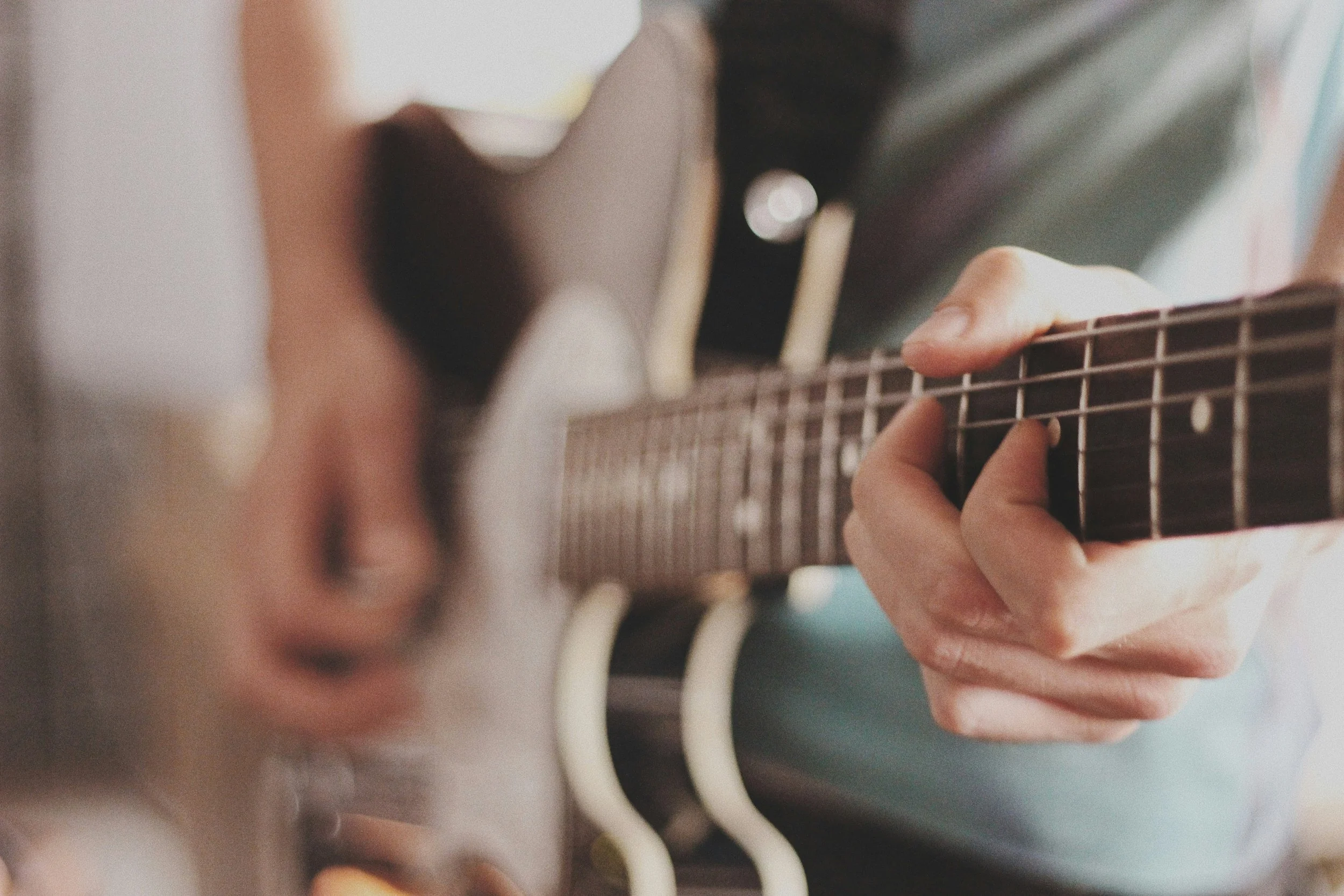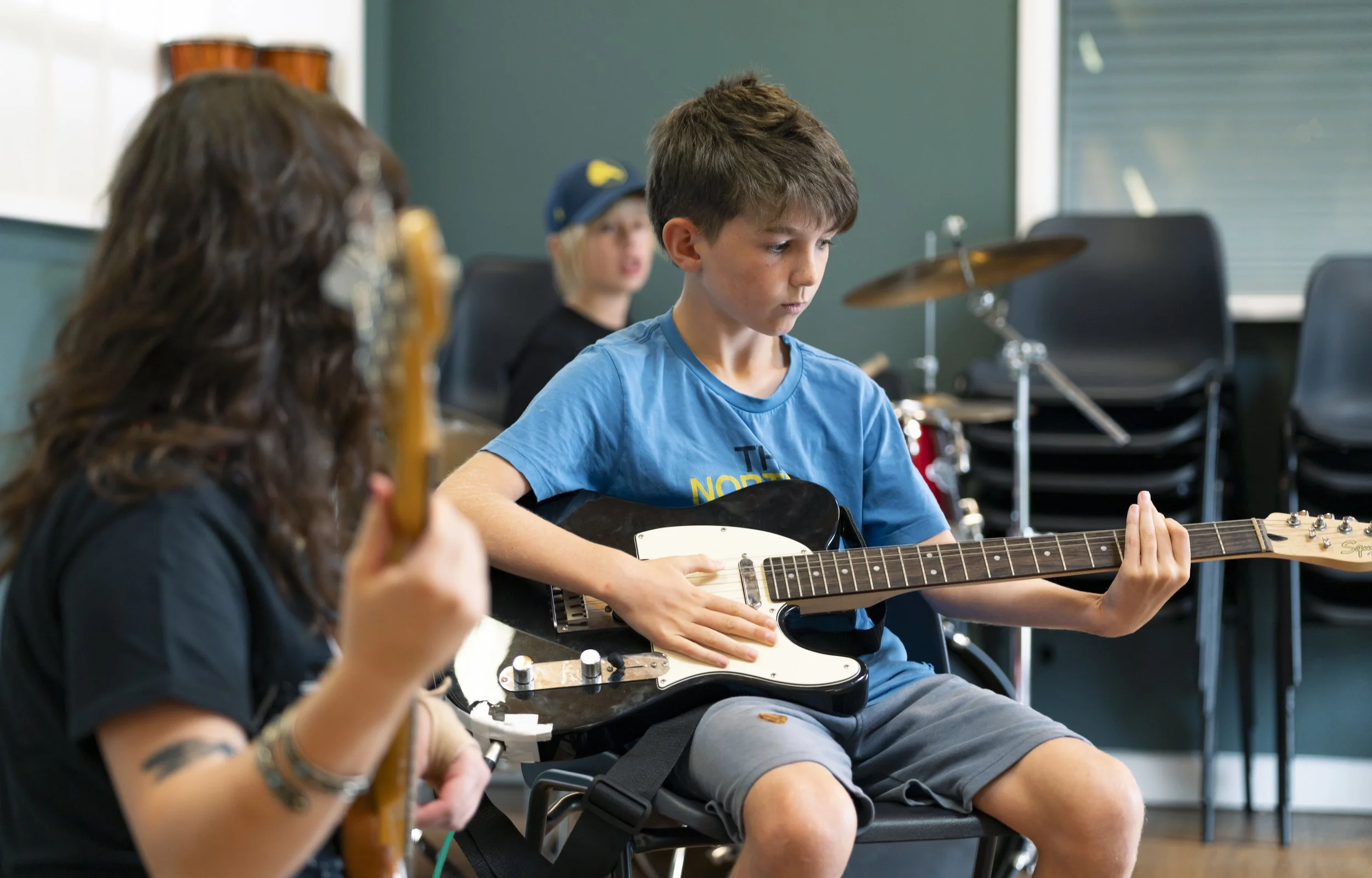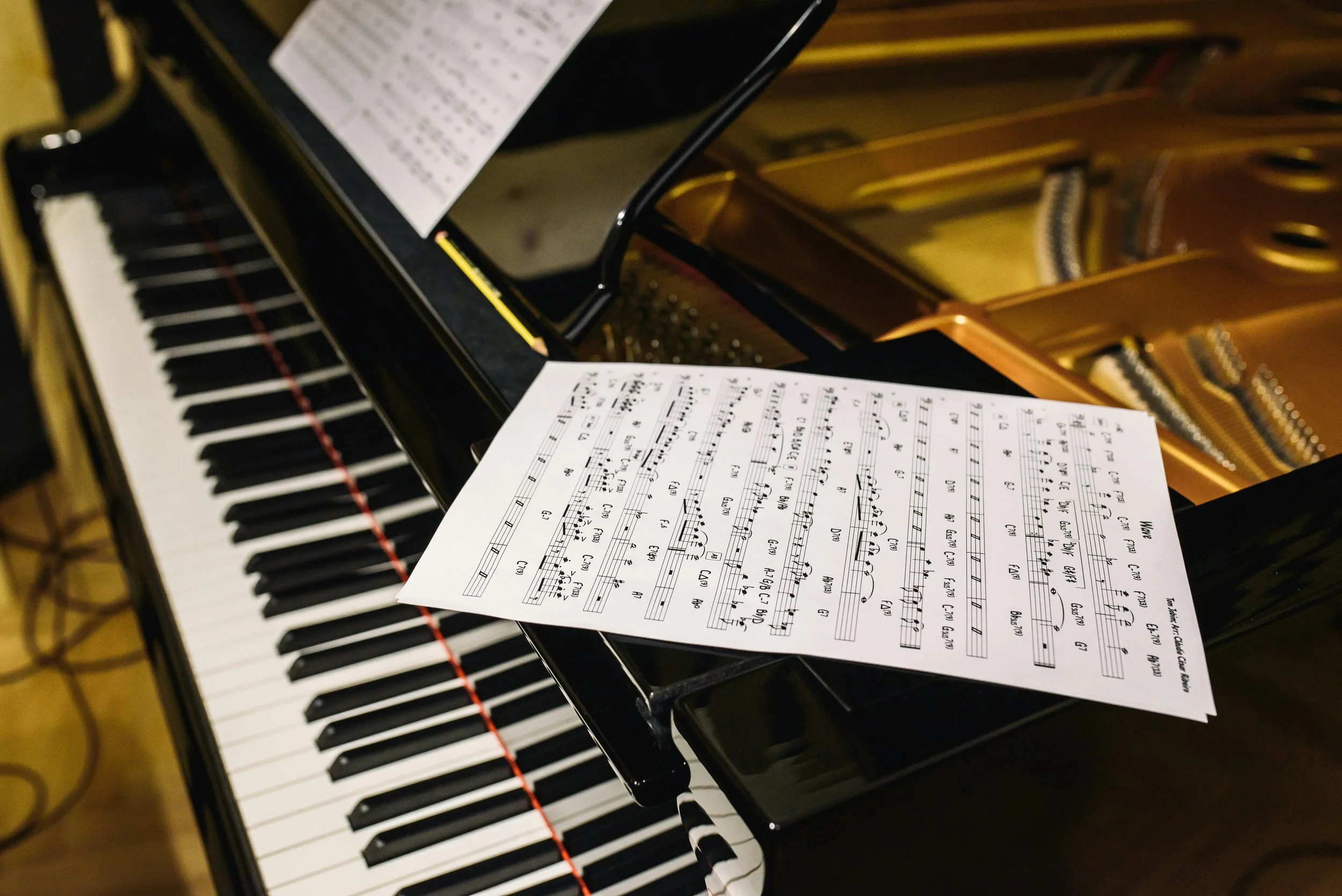
Music Tuition
Lessons for All Ages & Abilities
We offer tuition in piano, strings, woodwind, guitar, drums, and vocals - suitable for all ages and skill levels. Lessons can be one-to-one, in pairs, or groups, depending on your preference and budget.
Prices start from just £5 for group sessions and £15 for 20 minutes of individual tuition. You can also book a Taster Session for only £5 - a great way to try us out with no commitment.
For details on what to do after your taster, click the Welcome Letter below.
If you would prefer online lessons instead of attending the centre in person, please let us know via email
Learn an Instrument
2025-2026 Term Dates
AUTUMN TERM 2025
Monday 8th September – Friday 19th December
Half term w/c 27th October
SPRING TERM 2026
Monday 5th January – Friday 27th March
Half term w/c 16th February
SUMMER TERM 2026
Monday 13th April – Friday 17th July
Half term w/c 25th May
Why learn music?
The benefits of learning music are very well documented.
For young people, it improves academic skills, develops physical skills and cultivates social skills. It can help self-esteem and teaches teamwork, co-operation and communication. Most of all, it should be enjoyable and fun!
Why learn at Coda?
At Coda, we’re proud to offer high-quality tuition and excellent facilities. All our tutors are highly qualified, experienced, and tailor lessons to suit your goals, whether for exams or just for fun.
Our students enjoy a 100% exam pass rate, with many achieving high merits and distinctions. Exams are only recommended when students are fully prepared. Coda is an approved centre for both Trinity and RGT exams.
Our purpose-built Music Centre is set in a beautiful rural location on a former Victorian dairy farm. It features twelve fully equipped music rooms, a large ensemble space, and a welcoming café - perfect for relaxing before or after lessons.
Bursary scheme
In order to support students who may have difficulty in affording the full cost of lessons or music therapy sessions, Coda Music and Arts Trust has set aside modest funds for a bursary scheme. The bursary fund is subject to funds being available and is always the subject of fundraising and appeals. If you would like advice on how to apply for a bursary, please get in touch!
Performance Opportunities
To support and compliment lessons, we try to offer regular performance opportunities. Performing is a key part of learning and progressing as a musician and informal performances can be a great way to take your first steps in public performance or in building your confidence and repertoire.
Owing to the ongoing development work at Coda, we do not currently have any such events planned, but keep an eye on our Facebook page or website calendar for upcoming dates and details in 2025.
New Student Information
Learning an instrument is a rewarding journey, and our experienced tutors are here to support you every step of the way. Read our full new student information page for guidance, advice, and practice diary recommendations.
Practice Tips
Learning an instrument is a fun and rewarding journey, though it can take time to find your rhythm. Everyone progresses at their own pace, and Coda’s experienced tutors will support your goals - whether you're aiming for exams, performance, or simply playing for pleasure.
Here are some simple tips to help you get the most from your practice:
Practice little and often – Aim for 12–15 minutes daily rather than long sessions once or twice a week.
Minimise distractions – Create a calm, dedicated space and time for practice.
Make it routine – Set a regular daily practice time so it becomes a habit.
Break it up – Try technical work in the morning and focus on pieces later in the day.
Take it slow – Learn music phrase by phrase, slowly and accurately.
Avoid always starting at the beginning – Work on sections individually, especially tricky parts.
Don’t practice mistakes – Repeating errors just reinforces them.
Record yourself – Listening back helps you hear your progress and areas to improve.
Tackle the tough bits – Don’t just play your favourite parts.
Stay in touch with your teacher – Share any struggles so they can help. Parental support and communication with tutors is also encouraged.
Listen to others – Hearing different interpretations can inspire your own style.
Keep a practice log – Use a notebook to track goals, tasks, and routines.
Keep it fun – Bored? Talk to your tutor, try composing, or listen to live music for inspiration.
This TED Talk outlines how playing an instrument benefits your brain
At Coda, we believe music is for everyone—at any age. One of our students took up the saxophone in his late 60s. Now in his 70s, he leads a jazz band and performs regular gigs in support of Coda!
Learning music later in life has real benefits: it can lower blood pressure, reduce stress, boost your immune system, and help keep your mind sharp. It’s also a great way to stay social and connected - key to protecting against conditions like dementia and Alzheimer’s..
Music Mark – The UK Association for Music Education
Here’s a great little short film from the BBC outlining 10 things you should know about the benefits of music – although aimed at schools, the facts are relevant to everyone! The benefits featured in this film are based on a booklet ‘10 Things Schools Should Know About Learning Music’ from Music Mark – The UK Association for Music Education.













